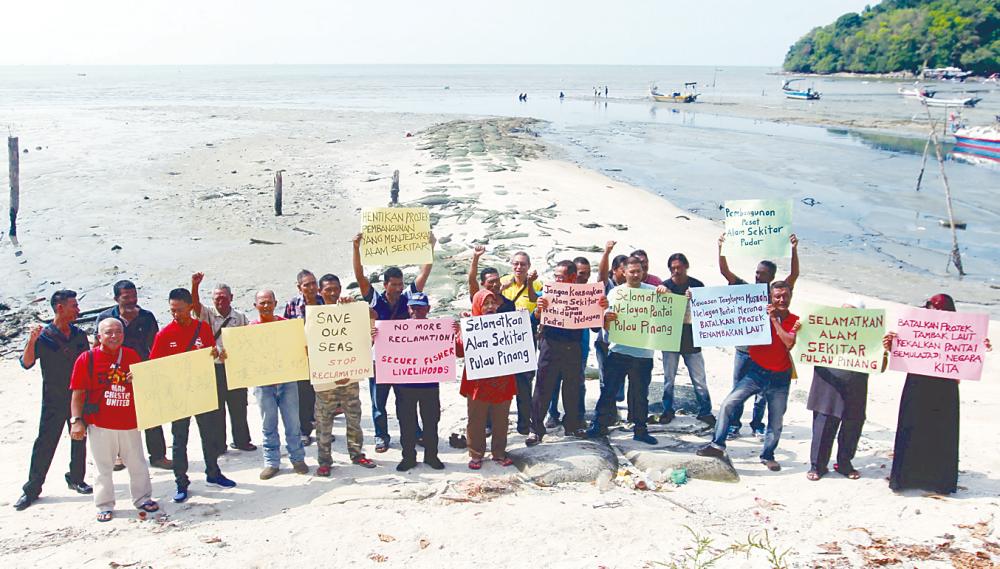IN “We protest the petition to cancel Penang’s PSR project” (May 11) its writer refers to a ship and its democratically chosen captain who should be left alone to navigate the ship to what the captain perceives is “paradise”.
Well, a captain may be chosen by an overwhelming vote. In celebrating his victory he and his team may get tipsy. He tells his passengers he will take them to “paradise” and creates jubilation among them. A few whisper into his ears to take them to “destination X”. He takes the wheel and sets course.
A few of the passengers who are familiar with the sea being sailed sense that it is heading in the wrong direction, and if it continues it will end up shipwrecked. Should these few persons sit idly by and let the ship self-destruct and take some, if not all, the passengers with it?
According to the writer’s logic, the few, even if they are right, are mere passengers and have no business to alert the captain. They should just let him do his work because he was elected by the majority on the ship.
I would think that if the few are convinced that the ship is heading for disaster, then it becomes their duty, both moral and legal, to firmly tell the captain of the hidden danger ahead, and if he ignores them, then it becomes legitimate for them to wrest control of the wheel and steer the ship away from danger.
Development should not destroy valuable existing industry
“Development” that destroys a home-grown food producing industry that has sustained itself for centuries and replace it with industries that want to make money the cheapest and quickest way, is foolish development.
The area coveted for creating the three artificial islands is a rich, inshore fishing ground. Inshore fishing is self-sustaining. It provides jobs for the fishermen and more importantly, is a very important supplier of cheap, natural protein to the people of Penang.
Comparatively, non-natural food industries (making products) are mercenary in nature. They are set up not to make Penang rich, but to make the industry operators rich by exploiting cheap labour and other concessions. Some factories in Penang are looking to re-locate to take advantage of low production costs. They are not concerned about the people of Penang who will be left jobless if and when they move.
The fishing grounds once destroyed cannot be re-created. Fish is a depleting resource worldwide as a result of overfishing and the use of modern methods like trawl fishing that scoops up even tiny fish fry which is turned into feed mill. Whereas inshore fishing brings in matured fish leaving the tiny fry to grow for catching another day. It’s a perfect, self-sustaining industry.
No compulsion for people to live in Penang
No one is compelling anyone to stay in Penang. If any one feels that without the kind of “development” that the state government is bent on Penang will be a backward place, they can always move to a more progressive place of their choice.
Appeal to Mahathir to preserve the local food producing industry
A feeling of power normally grips those who wield patronage, a feeling that they can mould and shape people and opinions any way they please. (Tun Dr Mahathir Mohamad in The Malay Dilemma).
This is what is happening in Penang. The wielders of patronage in Penang (the state government which is bent on pushing through a huge project mooted by the construction industry) have been tirelessly moulding and shaping the people’s opinions to believe that the mega projects are the lifeline for the survival of Penang. This is far from the truth and the only reason for this is to enable the construction industries to carry on with the massive projects for their direct benefit regardless of the consequences. Please stop the destruction of the natural environment. The construction industry cannot dictate what “development” a state needs as there is a serious conflict of interest.
Ravinder Singh
Penang















